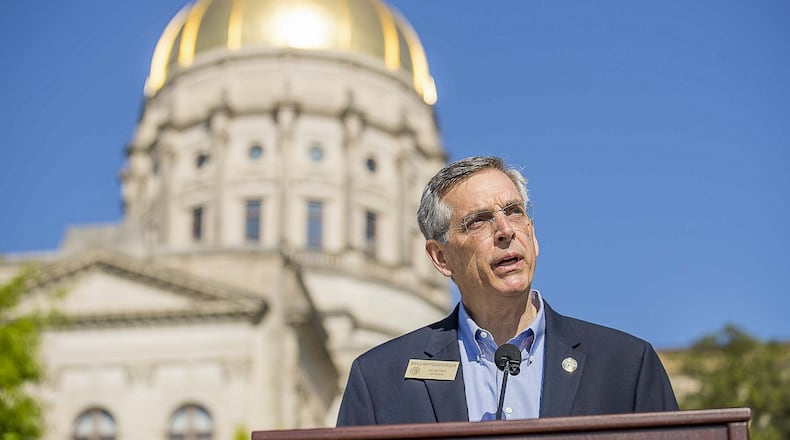Secretary of State Brad Raffensperger announced an initiative Monday to investigate any voting fraud that arises from widespread use of mailed-in ballots in Georgia’s primary.
Raffensperger, who mailed absentee ballot request forms to Georgia's 6.9 million active voters, said he wants to ensure no one takes advantage of the state's unprecedented reliance on remote voting for the May 19 primary.
A task force of election officials, prosecutors and law enforcement officers will investigate mismatched voter signatures, multiple voters at the same address and voters who use nonresidential addresses, Raffensperger said.
Election fraud is rare in Georgia, but Raffensperger said it could increase when voters avoid regular precincts during the coronavirus pandemic.
“We want to make sure … everyone’s vote counts once, it’s accurate, and that troublemakers can’t do things that don’t abide by that principle of one person, one vote,” Raffensperger, a Republican, said during a press conference outside the Georgia Capitol.
Raffensperger said absentee ballots are more vulnerable to fraud because they’re filled out away from poll workers, and mailed ballots don’t require photo ID. Georgia has required photo ID for in-person voting since 2005.
County election officials are bracing for a flood of absentee ballots as voters avoid human contact at the polls. In-person voting locations must remain open for early voting and on election day under Georgia law.
The Democratic Party of Georgia criticized Raffensperger, saying he’s using the public health emergency to attack voters’ ability to cast their ballots.
“Years of evidence show us that voter fraud does not exist in Georgia, but voter suppression does,” said Scott Hogan, the Democratic Party’s executive director. “Raffensperger’s announcement of an absentee ballot fraud task force is state-sponsored voter intimidation.”
House Speaker David Ralston, a Republican from Blue Ridge, said last week that heavy use of absentee voting could lead to election fraud, a concern frequently raised by Republicans.
Ralston said he’s concerned that election fraud could occur if people collect and mail absentee ballots for their candidates. A Georgia law passed last year only allows voters, their family members or people living in their households to mail absentee ballots.
The task force will also research proposing a new law that would make it a crime for someone to cast a ballot in Georgia and another state at the same time, Raffensperger said.
He didn’t immediately announce the names of the people who will serve on the task force.
About the Author
Keep Reading
The Latest
Featured




